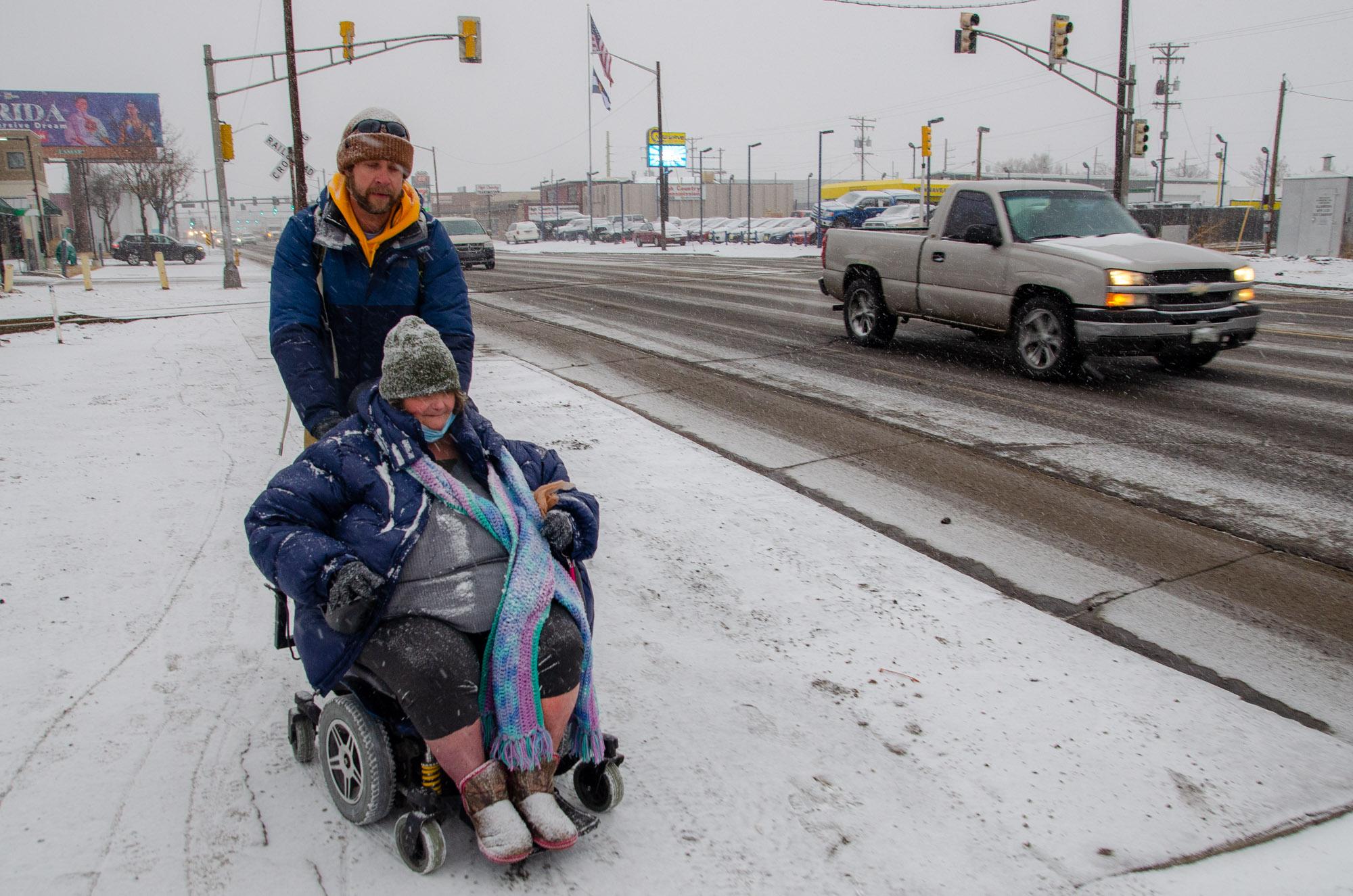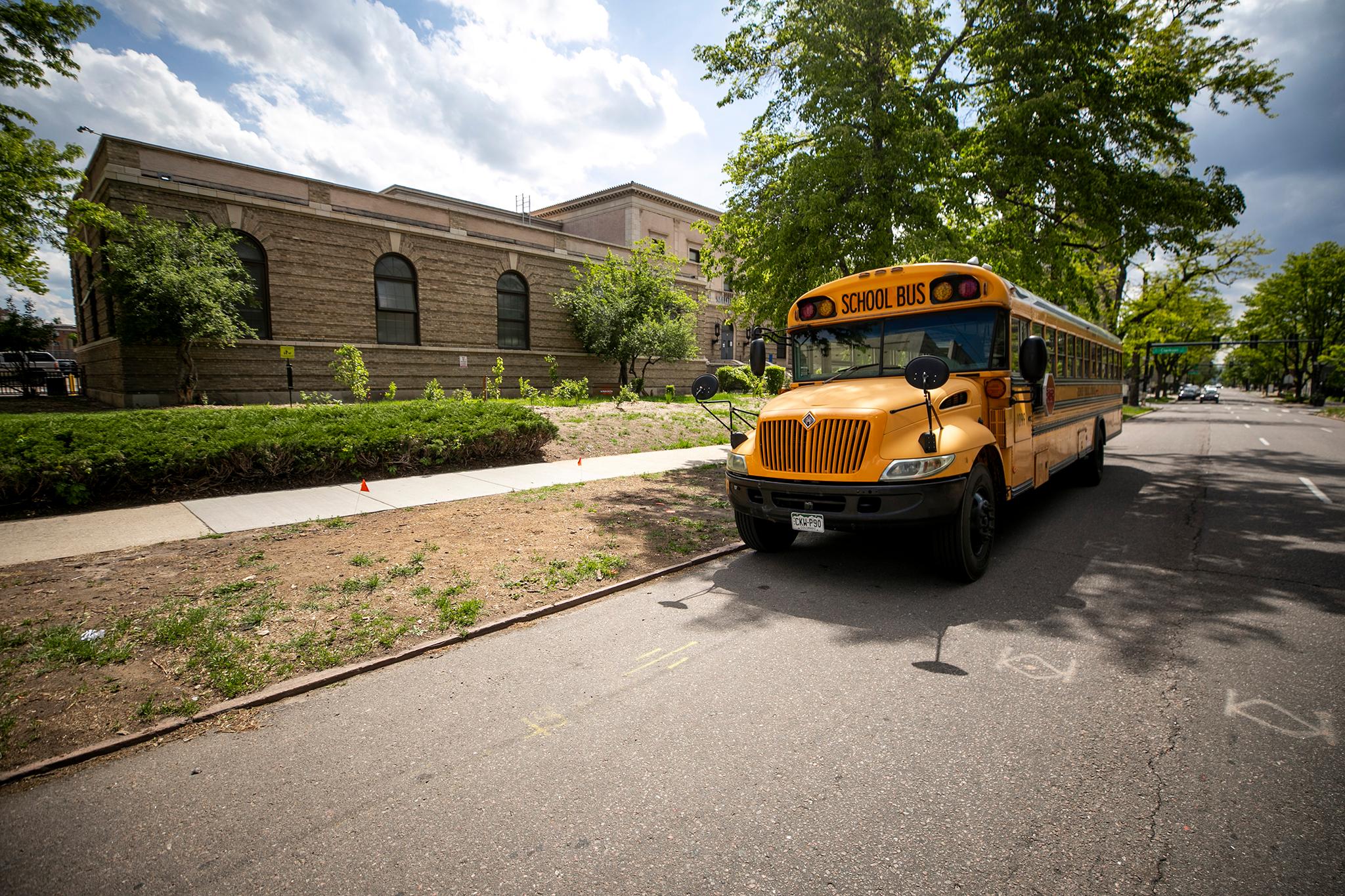A trio of Democratic mayors -- Denver's Mike Johnston, New York's Eric Adams and Chicago's Brandon Johnson -- are asking the federal government to declare a state of emergency, create a coordinated strategy and increase funding for cities trying to shelter an ever-growing number of Venezuelan asylum seekers arriving from the southern border.
These cities and others have been asking for a federal fix for months. So far, little help has come, even as Texas Gov. Greg Abbott has continued to send migrants nationwide by plane and by bus, in a largely uncoordinated approach that has been going on for over a year and is still being treated, in Denver, like a triage situation.
"The lack of care that has been on display over the last year and a half has created an incredible amount of chaos," Chicago's Johnson said of the Texas governor's strategy.
The mayors want Abbott to "stop the games" and quit using migrants as "political pawns," Adams said.
Abbott's office was not immediately available for questions. Denverite will update this story if he responds to requests for comment.
All three cities have restricted when and where buses of migrants can arrive.
In New York City, buses can only arrive 8:30 a.m. till 12 p.m. Monday through Friday, said Adams, who issued an executive order. Companies have to give the city 36 hours notice. Violations of the order constitute a misdemeanor crime.
In Chicago, buses can deliver migrants from 8:30 a.m. to 5 p.m. on weekdays, and their arrival must be coordinated with the city 48 hours in advance.
Johnson, of Chicago, says Texas' Gov. Abbott has been violating that law to make a political point by sending migrants to the city outside the permitted times.
The Chicago mayor is working with suburban mayors to ensure consistency in the region.
Johnston said Denver also restricts when and where buses arrive. Migrants can be processed by the city from 8 a.m. to 5 p.m. five days a week and must be dropped off at approved sites.
He plans to explore with City Council whether to "expand or enhance potential penalties or consequences," if buses arrive outside designated times and locations.
Denver prides itself on being ground zero in trying to resolve and respond to the migrant crisis, Johnston said.
Over the past year, the city has had more migrants arrive per capita than any other city in the country, he claimed.
This assertion, based on his office's analysis, is somewhat misleading. The administration only looked at Denver, Chicago, New York City, Washington D.C., Los Angeles and Philadelphia.
No border cities or towns were included, and the list was far from comprehensive.
Still, the number of migrants Denver has served so far is the equivalent of 5% of the city's population, compared to New York City, where asylum seekers served would be just under 2% of the total population.
Why are so many people coming to Denver?
"That is not because there is a thoughtful or coordinated strategy for entry," Johnston said. "It is because we are the first big city north of El Paso and the cheapest bus ticket and the shortest trip for the governor and others who are trying to find a place to send people. We do not think that's the best way to handle a crisis of this magnitude."
Denver has served more than 34,000 migrants so far and spent more than $36 million on the issue.
In comparison, New York had served 161,000 asylum seekers -- or 60% of those who have arrived in the country, Adams said.
Denver is not equipped to shelter so many people.
Next week, the city plans to sweep an encampment at Zuni St. where many migrants, kicked out of shelters with nowhere to go, have been living in tents. The forced cleanup was announced in postings from the Department of Transportation and Infrastructure.
Like so many unhoused people living outside, the encampment's residents will be pushed from one block to the next, even as the mayor works to house 2,000 people in his first 18 months in office and acknowledges sweeps does nothing to eliminate homelessness.
The reason for the forced cleanup? The encampment is obstructing the public right of way.
Though many asylum seekers are sleeping outside, currently more than 4,130 migrants are in city-run shelters, where city workers have been redeployed to assist with the effort.
At least 114 new arrivals showed up in Denver on Wednesday, and thousands more people are expected to be bused in over the following weeks.
Denver has received some outside support from other government agencies as the city works to shelter and integrate asylum seekers.
That includes nearly $11 million in reimbursements and advances from the U.S. Dept. of Homeland Security.
The State of Colorado has also reimbursed the city for $3.5 million of its budget.
But that's a pittance of what's needed.
In 2024, the city is looking at spending $160 million on migrant resolution, or 10% of the city's budget, Johnston said.
So what do the mayors want from the federal government? Money and coordination.
Johnston pointed to Chicago's collaboration with the federal government, where thousands of Ukrainian and Afghan asylum seekers arrived with federal support and a plan for coordinated entry.
"As a result, they were very successful," Johnston said.
And he wants Venezuelans to experience the same sort of support, both for their benefit and for cities like Denver.
Johnston argued the federal government needed to take three steps: increase work authorization programs so people could pay their own way when they settle in a new city instead of relying on local government resources; increase federal spending to decrease the strain on city budgets; and create a coordinated entry plan, taking that power from Abbott.
Johnston cautioned the migrant response, if unaided by the federal government, could "crush city budgets around the country."













